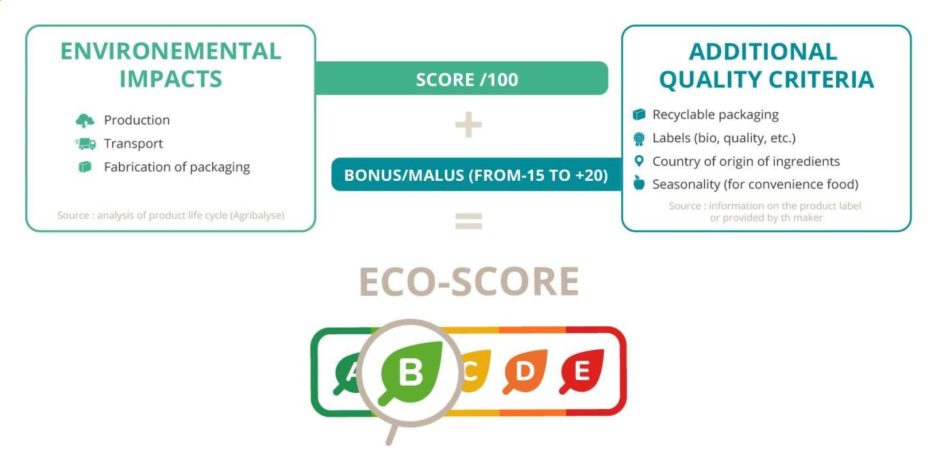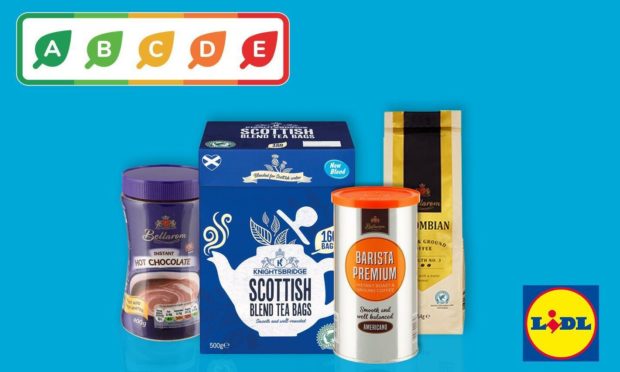The supermarket chain Lidl has announced plans to roll out a traffic light labelling system based on sustainability across Scottish stores this September.
The Eco-Score uses open-source data to grade products on their sustainability credentials.
Assigning a colour code ranging from green ‘A’ (low impact) to red ‘E’ (high impact), the label will appear on the front of packaging to help consumers navigate the sustainability of certain food and drink products.
How will it measure the ‘environmental impact’ of food?
“Rolling out the Eco-Score trial in Scotland is a huge milestone for Lidl, one we’re extremely proud of,” said Amali Bunter, head of responsible sourcing and ethical trade at Lidl.
Climate and sustainability are high on the agenda this year, and supermarkets are trying to ramp up their climate commitments to shoppers: “We know that shoppers want more support in understanding the environmental impact of the products they buy day-to-day and Eco-Score will do just that,” she said.
The Eco-Score grading is determined by the ‘environmental impact’ of the product, including criteria such as production, transportation and packaging plus additional factors including recyclable packaging, seasonality and Fairtrade certifications.
Lidl will apply the colour-coded label to more than 50 of its own-brand products, however, at least 30% of them belong to the beverage category, including teas, coffees and hot chocolate.
Green light from the Climate Assembly
The news of Lidl’s new traffic light scheme has been welcomed by Scotland’s Climate Assembly.
The Assembly is a group of more than 100 Scots – funded by the Scottish Government to investigate climate change – which earlier this year submitted 81 recommendations to Holyrood on tackling the climate emergency.
One of these very recommendations was the introduction of a traffic light system to alert consumers to the carbon footprint of different food products on supermarket shelves.
A spokesperson said: “We welcome this important step by Lidl. Scotland’s Climate Assembly recommends the introduction of food carbon labelling showing real and total carbon content as opposed to the offset carbon footprint.
“This is one of the changes our “mini-Scotland” agreed is necessary for the country to tackle the climate emergency in a fair and effective way.”

What about other supermarkets?
So far, Lidl is the only major UK supermarket to be at the stage of actually trailing eco-labelling like this in store.
Other major brands like Sainsbury’s, Aldi, Tesco, M&S, Morrisons and Co-op meanwhile are all signed up to an organisation called Foundation Earth.
The firm says it’s aim is “to issue front-of-pack environmental scores on food products, enabling consumers to make more sustainable buying choices”, however, there is no firm date on when we might see this labelling in stores.
Lidl is also signed up to Foundation Earth. It’s not clear whether this will conflict with its current Eco-Score method when both are eventually in use.

